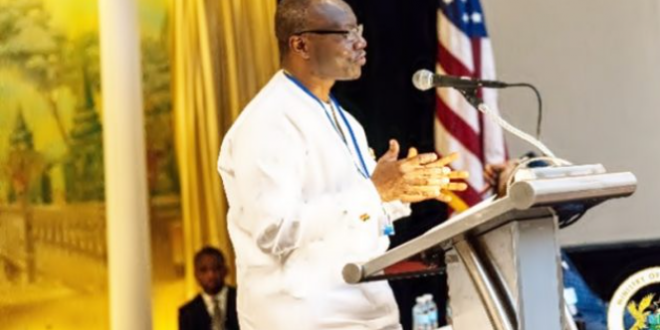The finance minister, Ken Ofori-Atta, after the 2022 budget reading has been on the hot seat as a result of the inclusion of an electronic transaction levy that seeks to tax Ghanaians who transact businesses electronically.
The ministry of information in collaboration with the ministry of finance has organized a series of town hall meetings to enlighten Ghanaians’ understanding of the proposed E-levy pending its approval by Parliament.

Reacting to this, Professor Piesie Osei Anto, a formal lecturer at the Ghana Communication Technology University Accra who is also a sociopolitical activist have called on the finance and the information ministry to publicly project the outcome of the town hall meetings for The entire country to know the reactions of Ghanaians as to whether they support the introduction of the E-Levy or are against it.
Professor Piesie Osei Anto stressed that, if the town hall meetings are not yielding any positive outcome, members of Parliament must be allowed to go to their various constituencies to have an engagement with their constituents to seek their intentions and ideas on the e-levy to make a final case on whether it should be approved by parliament or be rejected.
He finally advised that decisions should be made public for entire Ghanaian populations to vote on a referendum to decide the final stance on the proposed e-levy if parliament cannot approve it on time.

Speaking in an interview on Gye Nyame Fm’s Morning Show dubbed Adeakye Abia hosted by Kwaku Mensah Abrampa, Professor Piesie Osei Anto added that there must be an immediate reintroduction of road tolls to reduce the burden on the country’s tax because globally every country collects road toll so why the revocation of it only in Ghana. He said if this government does not reintroduce the road tolls, any government that comes after this government must introduce it to generate revenue for the country.
He again added that there are other means the country can generate revenues should the e-levy fails to materialize by collecting all state funds that are yearly misappropriated as a result of bribery and corruption.
 MYGHANAMEDIA.COM Best Source Of Latest News
MYGHANAMEDIA.COM Best Source Of Latest News





